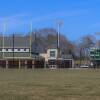Following alleged hazing behavior, racism and homophobia at Danvers High School and a series of racist incidents at Quincy High School, school officials are grappling with how to quell increasingly violent and abusive behavior among student populations.
Former Massachusetts Secretary of Education Paul Reville joined Boston Public Radio on Thursday to share his thoughts on the wave of violent incidents and bullying sweeping through schools across the nation.
“What we're seeing all across the country — not just here in the commonwealth — is an upsurge of all kinds of negativity and the inability of people to cope with the stresses and pressures of coming back together after a long time of being in isolation, of being somewhat alienated, of being exhausted and frightened by the [pandemic],” Reville said.
While COVID-19 has complicated school environments for many students, Reville believes that school stress exacerbated by the pandemic isn’t the only reason behind the increase of violence and bullying in schools nationwide.
More Local News
“It starts with the adults. Look at what's happening at our school boards in terms of the kinds of threats and ad hominem attacks that are going on from the highest levels on down,” Reville said, pointing to Republican Rep. Paul Gosar of Arizona sharing an altered anime video of him on Twitter killing Democratic Rep. Alexandria Ocasio-Cortez and going on to fight President Joe Biden.
“What kind of an example is this setting for parents coming to school boards, for parents coming into schools, and for kids getting along with one another?”
School and local officials are struggling to find solutions to recent outbreaks in violence and student misconduct. Reville told BPR that he recently received a call from Dr. Eric Jay Rosser, the superintendent of the Poughkeepsie City School District, and Poughkeepsie Mayor Roger G. Rolison after a shooting occurred outside of Poughkeepsie High School on Nov. 15.
“It's just violence breaking out all over,” Reville said. “It's the number one problem that I hear a lot of superintendents and principals and others complaining about right now.”
When asked about the possibility of state intervention in the wake of violent incidents, Reville stated that such incidents fall under local control. The state could, however, use their influence to draw attention to issues of bullying and violence.
“The state can use its leverage, and its perceived authority — whether it has the actual authority to do it or not — to put pressure on a community,” Reville said. “For example, there's nothing stopping [Commissioner Jeffrey Riley] from calling the school board into a special meeting with him, or calling the superintendent into a special meeting with him, or [Secretary of Education James Peyser] making a point of going down to the community and meeting with the aggrieved parties in a crisis like this.”
Reville is the former Massachusetts secretary of education, and a professor at Harvard University’s Graduate School of Education, where he also heads the Education Redesign Lab. His latest book, co-authored with Elaine Weiss, is: " Broader, Bolder, Better: How Schools And Communities Help Students Overcome The Disadvantages Of Poverty .”








